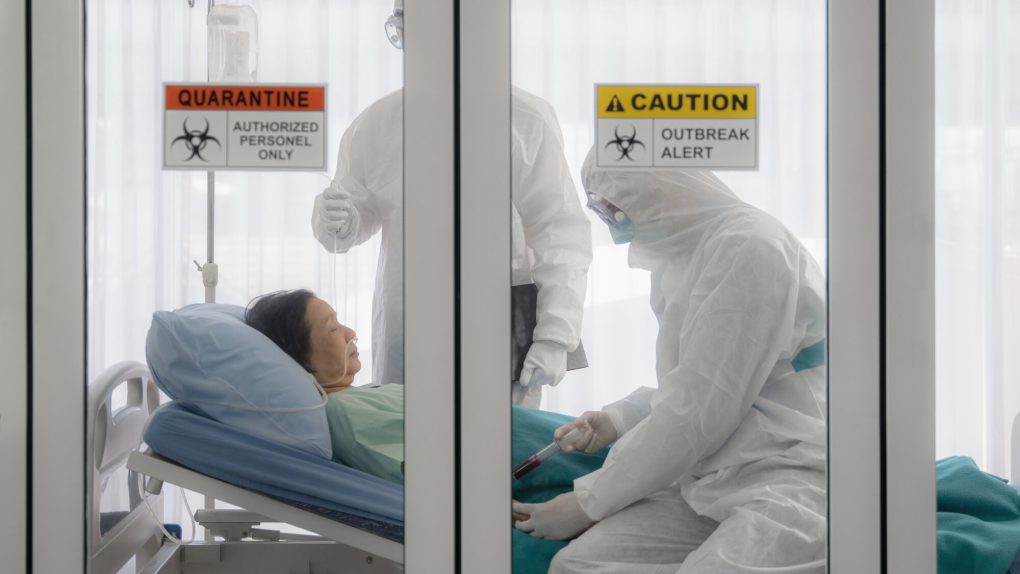- A preliminary coronavirus study from the UK indicates that the B.1.1.7 mutation is deadlier than other versions of the virus.
- The researchers analyzed mortality rates for non-hospitalized people who tested positive for COVID-19 from November through mid-January and discovered the mutation might be deadlier for all age groups, genders, and ethnicities, and especially for older age groups.
- Other studies have not found an increased mortality risk in hospitalized COVID-19 patients infected with the B.1.1.7 strain.
The UK coronavirus mutation (B.1.1.7) has been spreading rapidly since the fall, becoming the dominant version of the virus by late 2020. The mutation includes several different genetic changes that allow the virus to bind to cells more efficiently. Initial reports said B.1.1.7 doesn’t cause more severe COVID-19. But the mutation could lead to more deaths as a larger percentage of the population might contract it — the UK experienced record COVID-19 figures at the end of December and in early January. The mutation was then observed in several other countries, including the US, where the CDC estimated it could become the dominant strain by March 2021.
Early reports said that the UK mutation won’t be a risk to COVID-19 survivors and that the existing vaccines can neutralize this virus variant. But a couple of developments make B.1.1.7 scarier. It appears that the mutation is also acquiring a genetic change seen in the South African variation (B.1.351) that could allow it to evade vaccines to some degree. Separately, a new report from the UK government said last week that the B.1.1.7 mutation has a higher mortality rate than its predecessors. Now, a preliminary study sheds more light on the death risk associated with B.1.1.7.
Researchers from the London School of Hygiene & Tropical Medicine (LSHTM) released an analysis that says the risk of death is around 35% higher for people infected with the new strain, Nature reports.
The risk isn’t the same for all age groups; older patients are more likely to be impacted. Men are also more at risk than women of the same age. The new numbers indicate that the risk increases from 5% to more than 6% for men aged 70-84. Those aged 85 and higher see an increase in risk from about 17% to almost 22%. The data has not been peer-reviewed, and it’s still unclear what causes the extra deaths in these age groups.
The authors analyzed data from more than 850,000 people tested between November 1st and January 11th but were not hospitalized for COVID-19. The researchers were able to identify people infected with B.1.1.7 thanks to one of the mutations that allows researchers to find B.1.1.7 suspects with a PCR test. The regular PCR test used for COVID looks for three specific genes, one of which is absent in B.1.1.7 results, and that’s why the PCR test is a useful tool for this particular strain.
The team found that B.1.1.7 is deadlier than previous strains in all age groups, genders, and ethnicities. But older age groups were impacted most.
This new study seems to confirm other preliminary findings summarized in a different document from the New and Emerging Respiratory Virus Threats Advisory Group (NERVTAG). Researchers from the Imperial College London found that the average case fatality rate for B.1.1.7 was 36% higher.
However, Nature points out that other studies have not found an increased risk of death in people admitted to the hospital with the new strain. More data is required to explain whether B.1.1.7 could lead to more death in some groups and which factors could favor severe COVID-19 complications with a B.1.1.7 infection.
The LSHTM study is available in pre-print form at this link.








